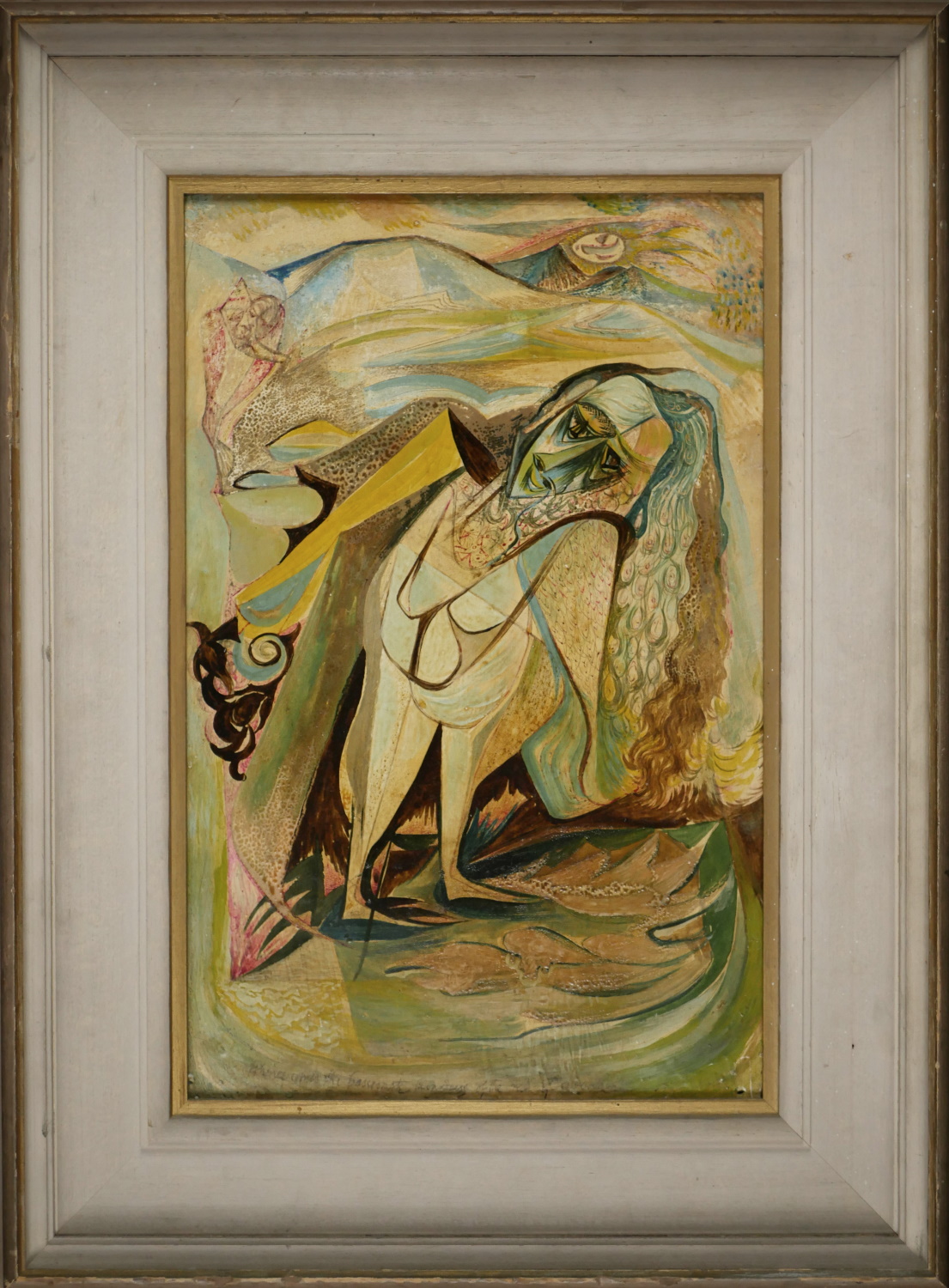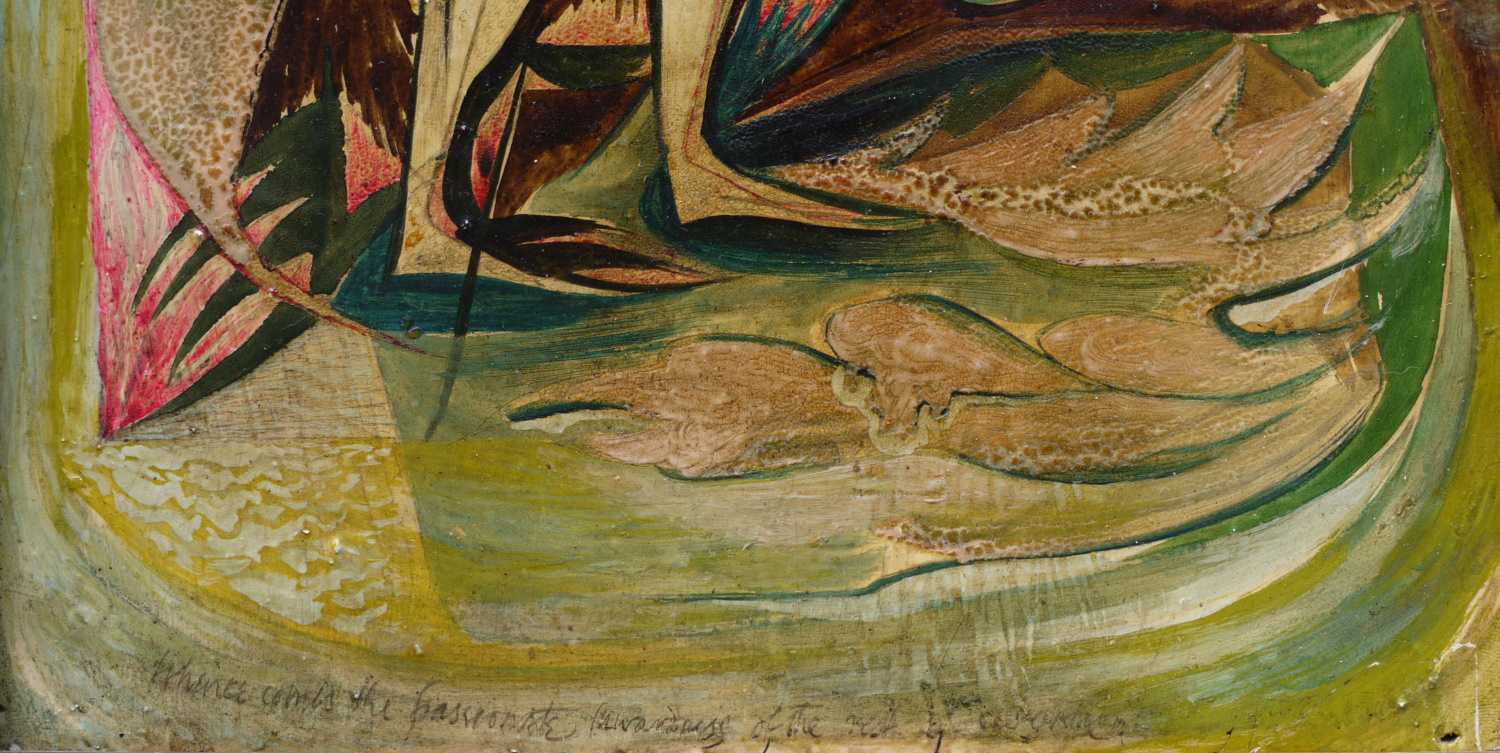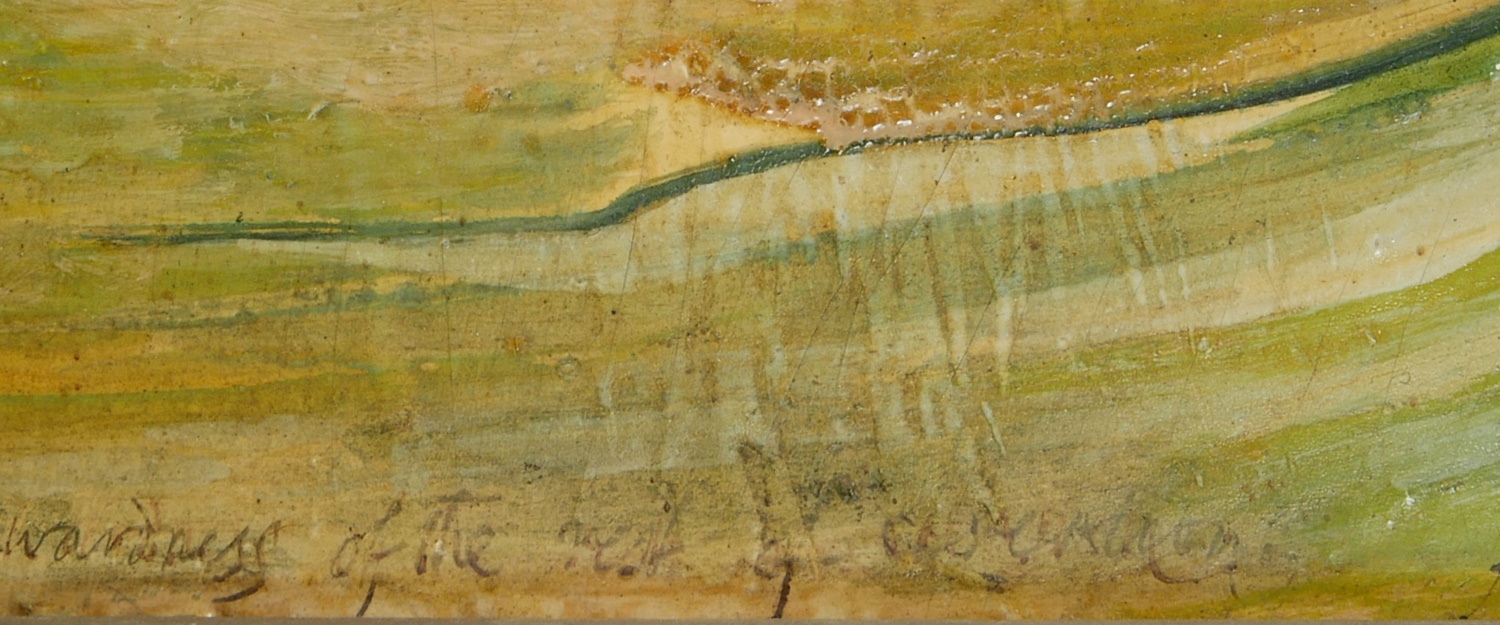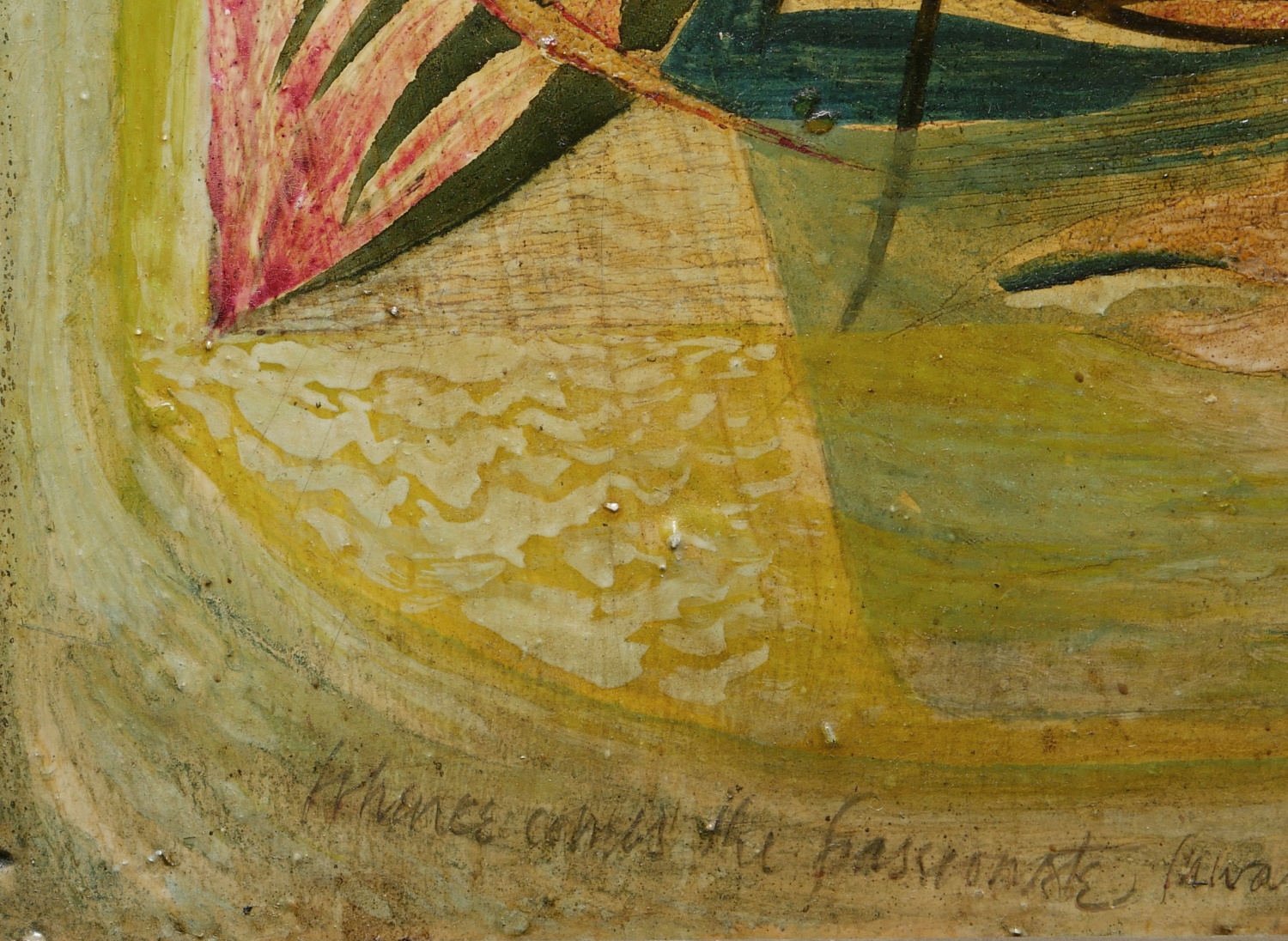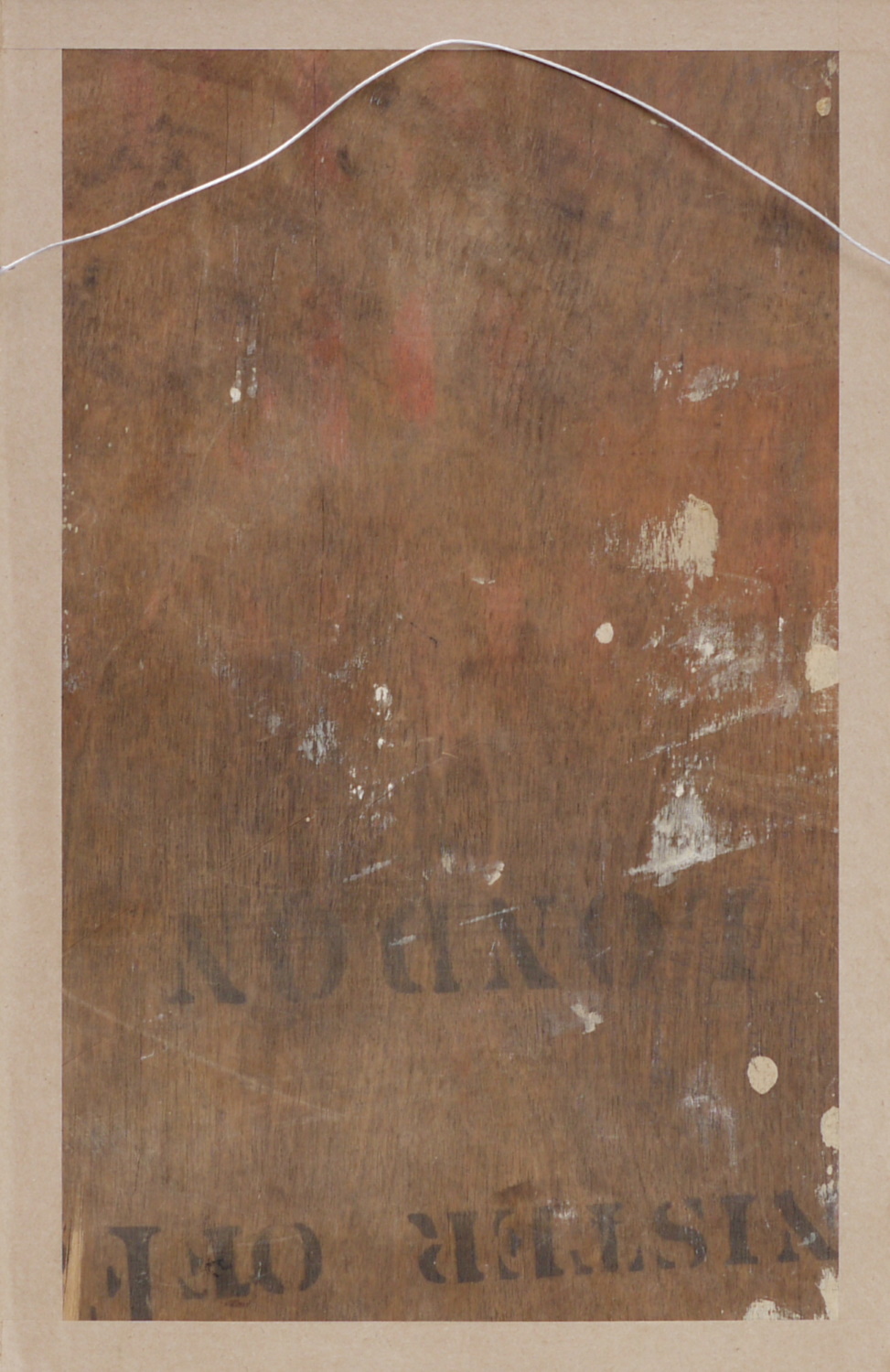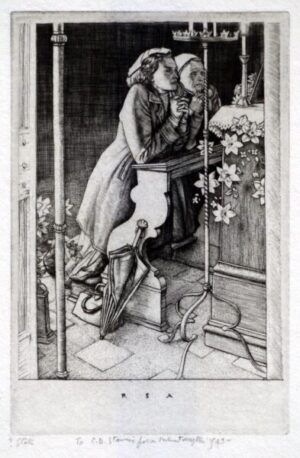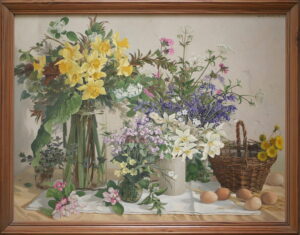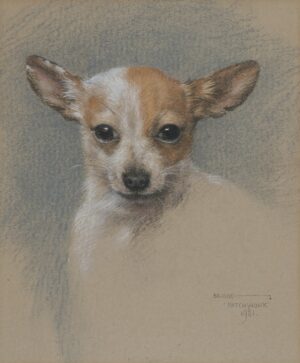Description
This picture was painted at a time when Britain saw many changes both in culture and art. The materials which have been used don’t appear to be that sophisticated, however, the execution is quite complex with different mediums at play including inks as well as paint. There is a poetic charm in the way the colours have been handled and applied, sometimes using the end of a brush to draw through the wet paint. The overall effect is not dissimilar to romantic artists of the 19th century but with more modern influences at play.
In British art history, the term “neo-romanticism” is applied to a loosely affiliated school of landscape painting that emerged around 1930 and continued until the early 1950s. It was first labelled in March 1942 by the critic Raymond Mortimer in the New Statesman. These painters looked back to 19th-century artists such as William Blake and Samuel Palmer, but were also influenced by French cubist and post-cubist artists such as Pablo Picasso, André Masson, and Pavel Tchelitchew (Clark and Clarke 2001; Hopkins 2001). This movement was motivated in part as a response to the threat of invasion during World War II. Artists particularly associated with the initiation of this movement included Paul Nash, John Piper, Henry Moore, Ivon Hitchens, and especially Graham Sutherland. A younger generation included John Minton, Michael Ayrton, John Craxton, Keith Vaughan, Robert Colquhoun, and Robert MacBryde (Button 1996).
